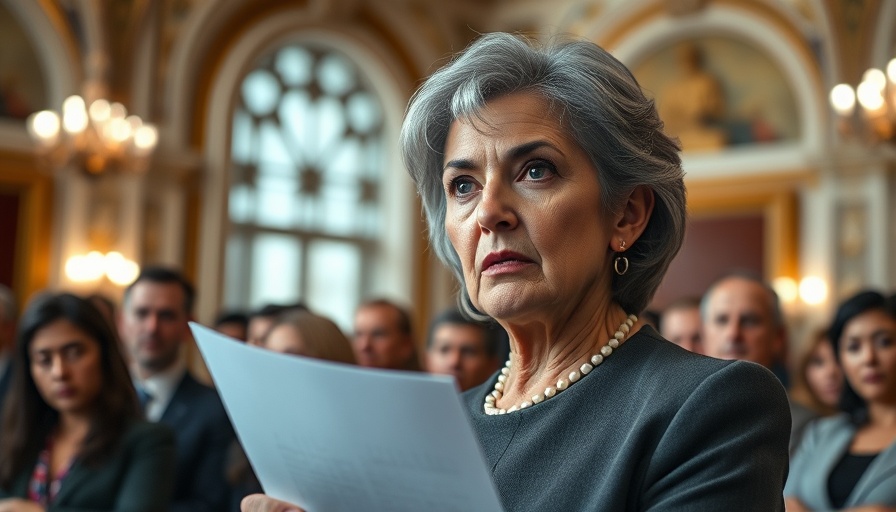
The Insensitive Response to Serious Concerns
The recent response from Iowa Senator Joni Ernst regarding proposed cuts to Medicaid has sparked outrage among constituents and health care advocates alike. During a town hall in Parkersburg, Ernst was confronted by a constituent who expressed concern that cuts to Medicaid could lead to people dying. Instead of addressing the seriousness of the concerns, Ernst remarked, "We all are going to die," which many perceived as a flippant dismissal of a life-and-death issue. Following this incident, she further complicated her standing by posting a sarcastic Instagram story filmed in a cemetery, reaffirming her earlier remarks.
Understanding the Context of Medicaid Cuts
These proposed cuts are no small matter. The current legislation aims to reduce federal Medicaid funding by $723 billion over the next ten years, which the Congressional Budget Office estimates could leave an additional 7.6 million Americans without health insurance. The implications of such drastic funding cuts are troubling, especially for vulnerable populations who rely on Medicaid for essential health services. Critics argue that Ernst's comments trivialize the genuine fears and experiences of those who depend on Medicaid.
A Farce or a Fundamental Misunderstanding?
As Ernst jokingly remarked about death in a cemetery, she only compounded the outrage among those watching. Critics say that her tone reflects a broader insensitivity regarding the realities of healthcare access in America. This reaction isn't merely a political misstep; it points to an alarming tendency to dismiss concerns that arise in local communities, where lives are genuinely at risk due to funding shortfalls.
What Voters Are Saying
Health care advocates and concerned constituents have voiced strong opposition to both the cuts and Ernst's response to them. Protests have erupted outside her office, and advocacy groups are rallying to persuade constituents to pressure lawmakers to take action against the bill. Many feel that Ernst's dismissive attitude starkly contrasts with the urgency of healthcare issues they face daily. As protests gain momentum and media coverage heightens, Ernst's comments continue to reverberate, drawing widespread condemnation.
What Comes Next?
With the Senate set to vote on the spending bill this summer, public response will undoubtedly play a pivotal role in shaping the outcome. As constituents continue to express their dissatisfaction with both the proposed Medicaid cuts and the manner in which their concerns are being treated, the question arises: will lawmakers heed the voices of those most impacted by their decisions? The stakes are high, and how this unfolds remains to be seen.
Conclusion: The Importance of Compassionate Leadership
In the realm of politics and healthcare, the importance of empathy and understanding cannot be overstated. Being dismissive in the face of legitimate concerns can only alienate constituents and further erode trust in elected officials. The urgency surrounding healthcare access calls for representatives who prioritize the lives affected by policy. As we await the Senate's decision, it is critical to keep advocating for those who may be vulnerable in the face of sweeping legislative changes. Engaging with local and nationwide advocacy efforts can amplify voices calling for justice and equitable healthcare solutions.
 Add Row
Add Row  Add
Add 




Write A Comment